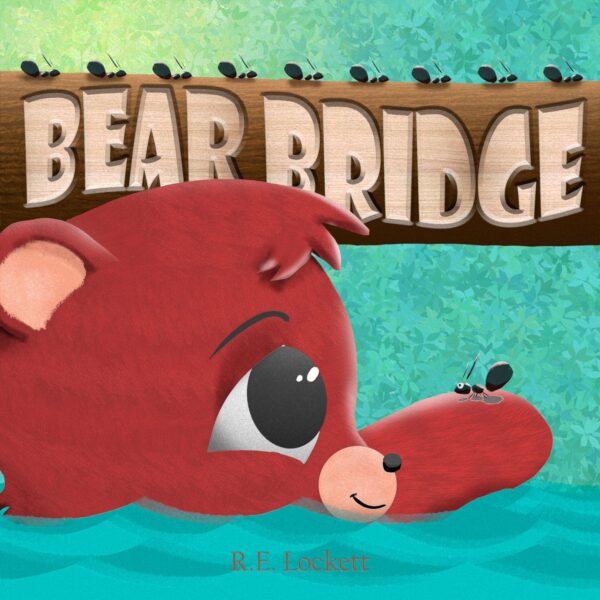Your cart is currently empty!
When Killing a Character is the Right Choice

in
Disclaimer: This post may contain affiliate links for books we recommend. If you make a purchase through these links, at no additional cost to you, we may earn a small commission. See our full Terms of Use here.
A character has to be interesting to capture your reader’s interest, but it also has to be right for the story you’re trying to tell. Sometimes that means letting go of your favorite character—and killing him or her off—in order to make room for a new, more important character that better helps you progress the story.
Writing involves making tough decisions, and sometimes those decisions can have enormous impacts on your work – both positive and negative. For characters, there are two decisions that you can make which will have a huge impact: whether to kill a character, and if so, when the right time to do it will be.
Sometimes, the character you envisioned isn’t the right fit for the story you’re trying to tell. Rather than force your story into the mold of your character, consider killing him or her off or simply moving on to a new one. Here are some tips on how to kill a character off and get away with it so that your readers don’t feel betrayed by you as the author.
What Happens When I Kill My Character?
There’s a reason so many authors kill off their main characters. From Romeo and Juliet to Game of Thrones, books and TV shows have clarified that killing off your lead character can be incredibly powerful and moving. But what happens if you take a risk like that? Where do you go after killing off your protagonist? How do you continue telling their story in a way that isn’t cheesy or hokey?
The answer lies in building them up well before they die—and making sure their death means something. It’s not just an empty shock moment for entertainment’s sake. Instead, think of it as part of an overarching message about good vs. evil or past vs. future or whatever else is important to your overall plot. That’ll help ensure that their death doesn’t feel forced or gimmicky. Make sure it has consequences on other characters and affects how everyone around them behaves from then on out.
The death of a major character can transform your story. When you kill off a character, it should be in service to your plot and theme. For example, if someone close to them has recently betrayed your main character, that betrayal could lead to their death at their betrayer’s hands. How you write your story depends on how you structure your plot and conflict. For some ideas on literary deaths and what makes them work, look at our post on Death and it’s Brilliant Life in Fiction.
How Do I Go About Killing Off My Character?
First, ask yourself why you’re considering killing off your character. Is it because they haven’t been getting along with other characters? Are they too much of a love interest or not enough? If you have come to terms with why killing them off is your best bet, then it’s time to plan. For fictional characters, we can handle death in many ways.
The best way to kill off a character quickly and painlessly is to delete them from your manuscript. If you decide on a character’s death still, it’s time for preparation and execution. Know why it needs to happen—often when characters die without meaning, their deaths distract from whatever point their life had been leading up to.
Know How It Happens
If it’s another character who will do the deed, develop some sort of relationship between these two beforehand. Do they hate each other? Are they friends? Does one look up to another or respect another’s opinion highly? What role does each play in each other’s lives?
Knowing these details beforehand can help with having stronger dialogue during tense moments between characters before their ultimate confrontation. Be sure to know what each side has to gain and lose by killing off your character (your story will already have stakes). Is there something at stake for everyone or are some not as involved? The different amounts of conflict should mirror how strong their points are, along with how real you make these conflict points feel.
Know What Should Happen Next
Be sure to write out what should happen after your character’s death. If you can’t come up with something, your character shouldn’t die. After all, if he’s so great and important that you need him to die, then it makes sense that his death would have some sort of purpose or meaning. Don’t kill off your characters just because they seem like they’re in danger; make sure their deaths add something to either plot or theme. For example, killing off a beloved hero might be right if he needs to die in order for someone else to take up his mantle as a main character in subsequent books.
If he dies here and now, where would his body go? Is there someone who will take care of him, or leave him in a dumpster to rot into oblivion? Do you know what happens during your character’s death, or should they die with no further action? Sometimes we need to be reminded that our characters are not just words on paper. They should feel like real people with genuine emotions. Sure, they may only live in our imagination for now, but they deserve to live their lives fully, even if it means going away forever. This can be very difficult, especially if your character has become someone close to you. It’s okay to let them go. Trust me.
Will Readers Like It If I Kill A Character?
It’s perfectly acceptable as long as its believable and something that makes sense within the story or plotline. Your editor/agent/reader will appreciate it if you’re flexible enough to allow room for both possibilities. Either way, try not to get too attached until after you’ve written it down because sometimes things don’t work out how we want them to. Be open-minded about changes, revisions and edits! Don’t force a scene that feels wrong. It is wrong.
Whether you’re considering killing a character to make space for another, or simply to create more plot complications, it’s important to know your readers. Do they typically enjoy shocking twists? Are they fine with sudden character deaths as long as it advances plot lines? What are their opinions on killing main characters versus lesser-known ones?
Answering these questions will help you decide whether a particular death will go over well with your audience—or if you should make some other changes instead. Keep in mind that no matter how well received it may be, an unexpected death can frustrate readers who have an attachment to certain beloved characters. Before killing off someone’s favorite character, consider whether you need them to die at all. Most often, there is an alternative solution that leaves everyone happy (the dead character included).
Whose Characters Are They?
It outrages many fans when long-standing characters die. Take the death of Sherlock Holmes, for instance. When Sir Arthur Conan Doyle killed off his most famous character in 1893, he received over fifty thousand letters protesting his decision. While it’s okay to take a calculated risk by killing off one of your favorite characters—or even one that you like little—be prepared for fan outcry and plan accordingly.
You’ll need to account for increased interest from news outlets (print and online) as well as social media chatter about your book or story; you might even see people posting reviews that are wholly focused on how terrible you are for taking out their beloved character. Having a major character die can also cause issues later in your series if they were beloved by readers. If you didn’t handle their departure right, or if one of your story lines revolved around them, it can discourage readers not to see that plot thread come together again.
Any writer will tell you that killing off a character is a hard choice to make. It’s emotionally taxing, and it can have far-reaching implications for your plot—not to mention your other characters. But sometimes you need to kill off a character in order to add emotional impact or kick-start major plot points. You need to know when it’s right to pull that trigger before you even start writing. Most of all, you need to make sure your decision has enough payoff that it won’t just leave readers feeling like you cheated them out of something exciting.
-R.E.

